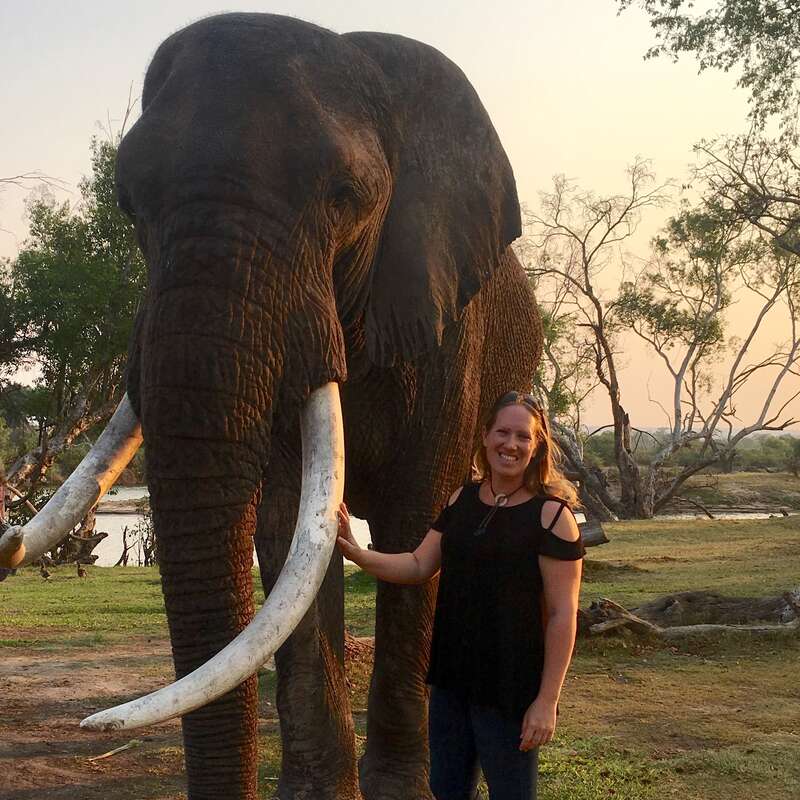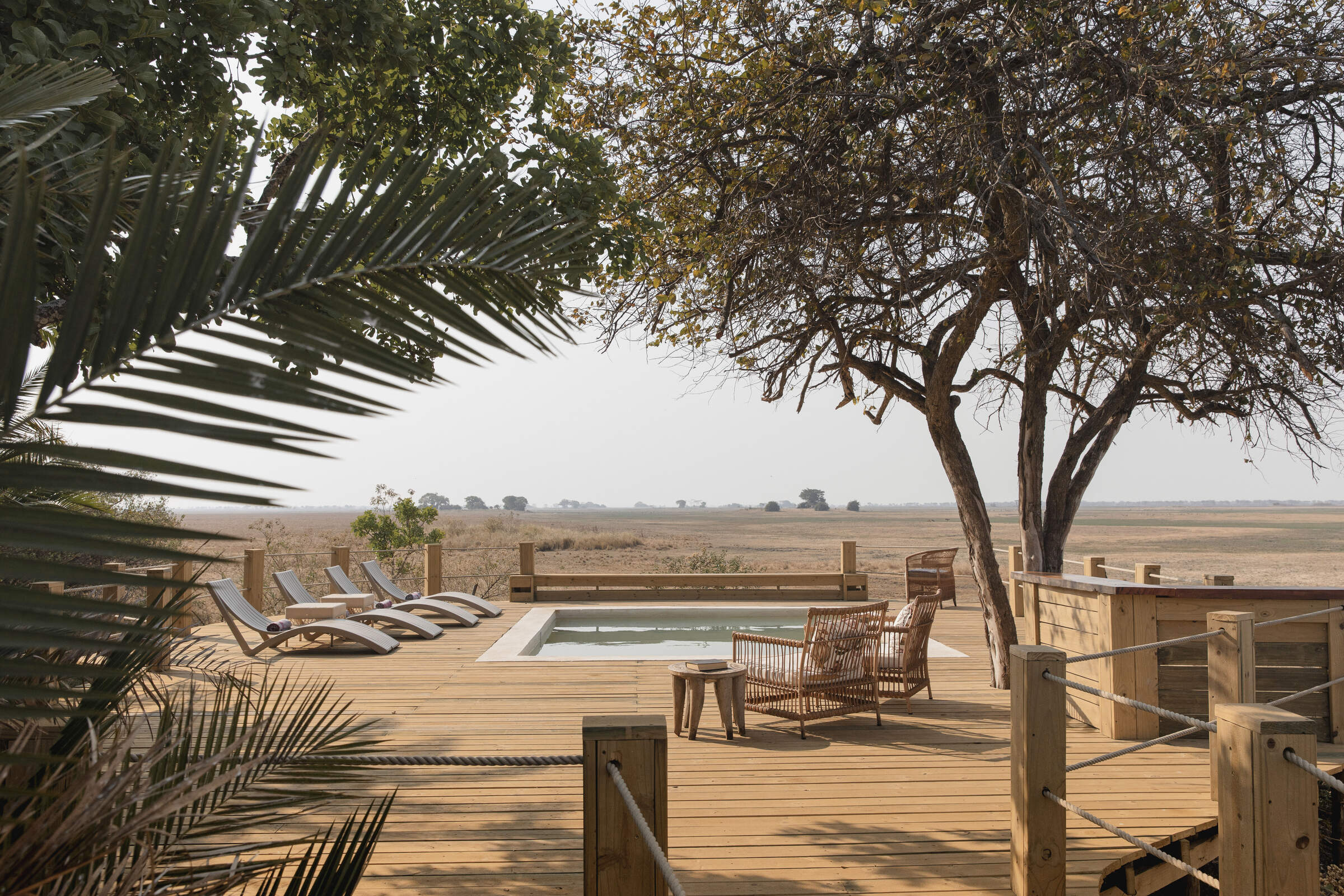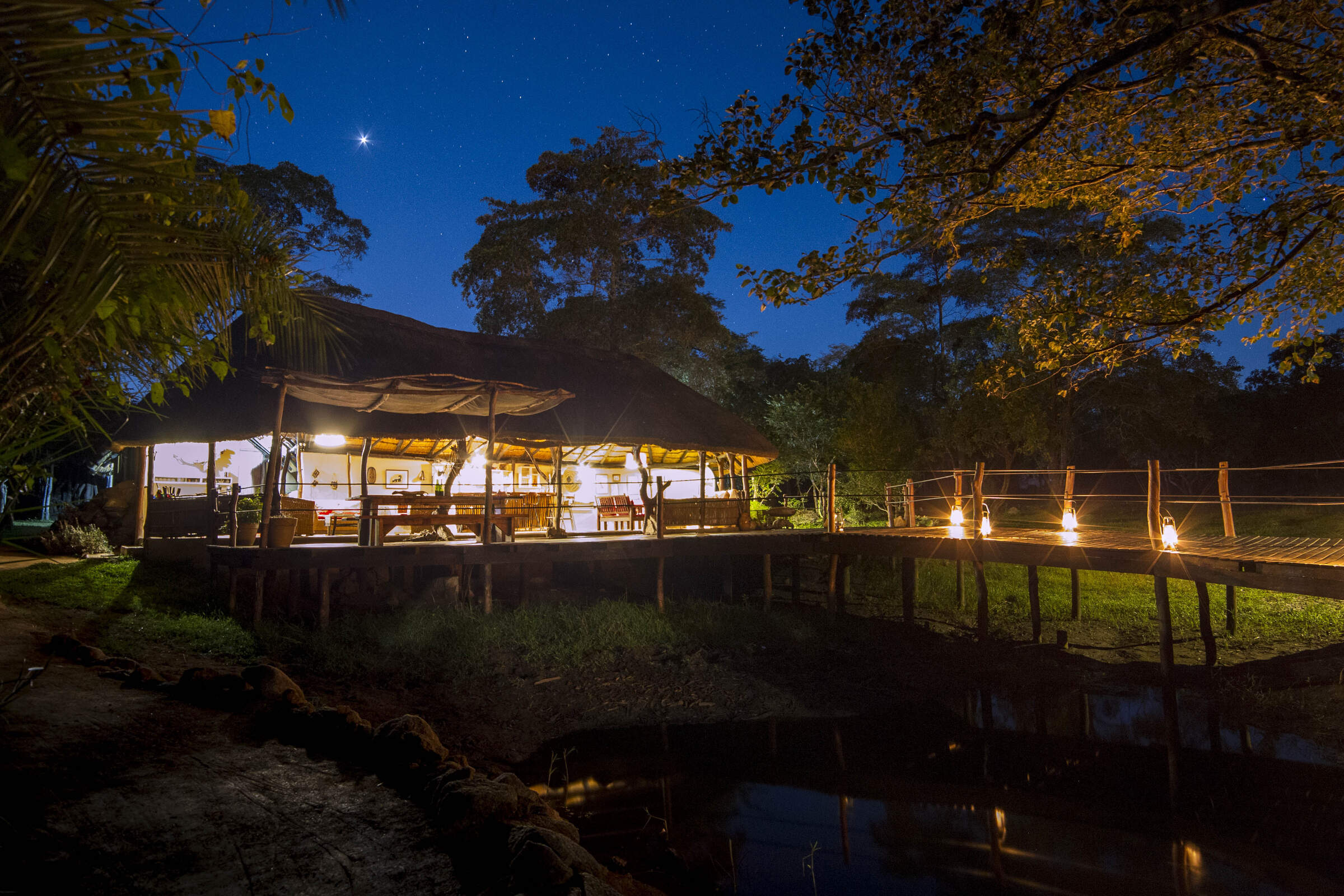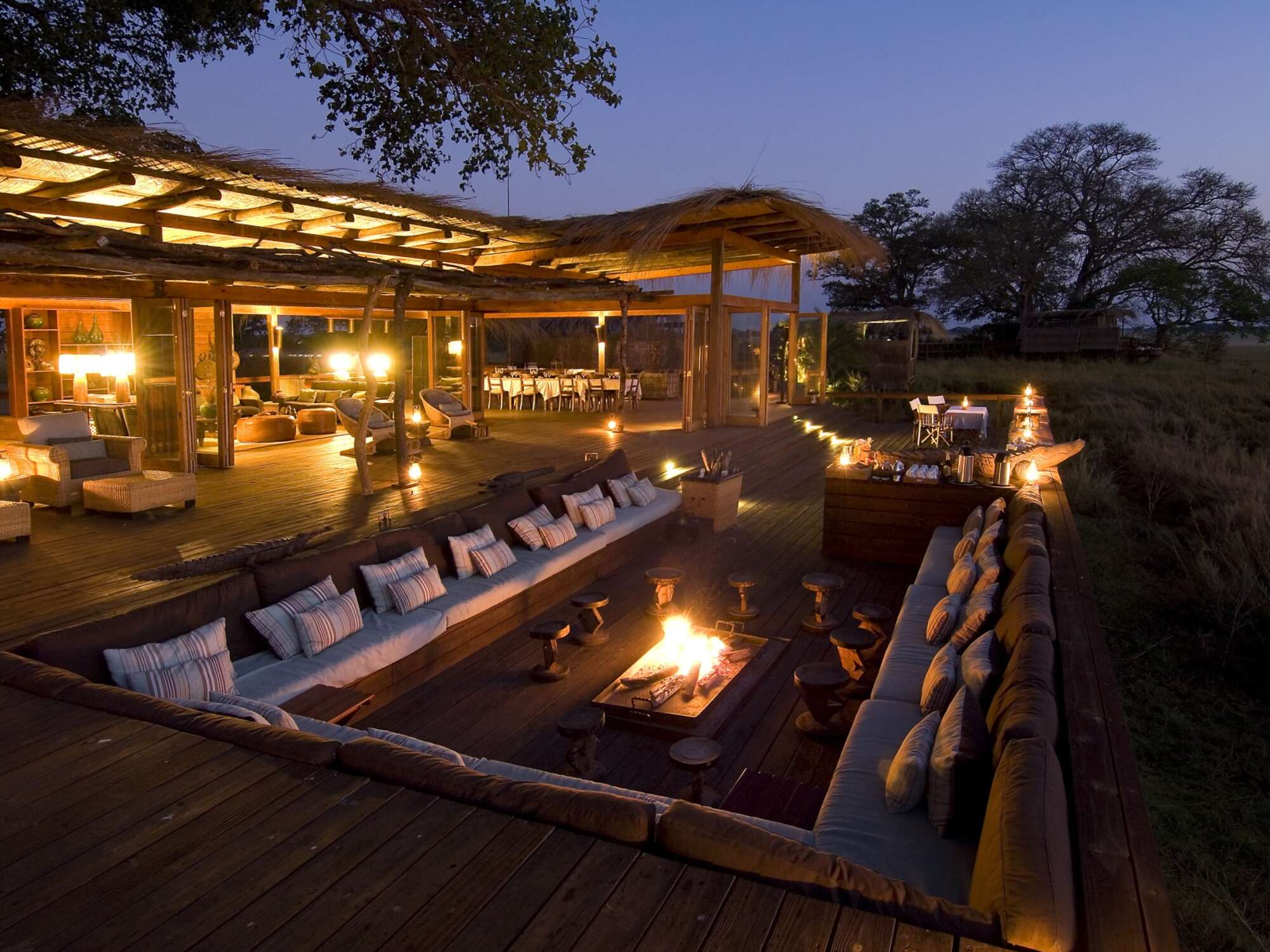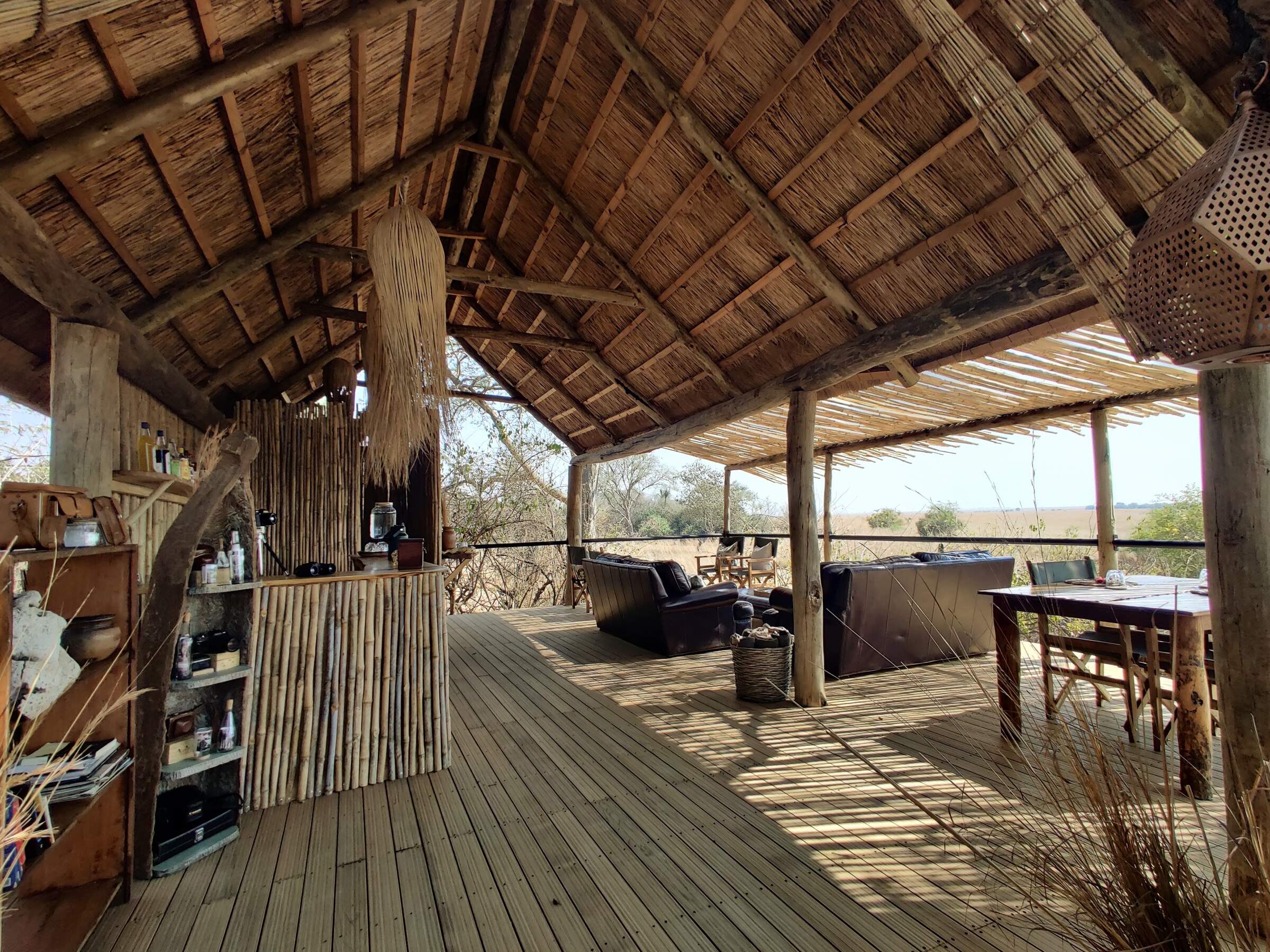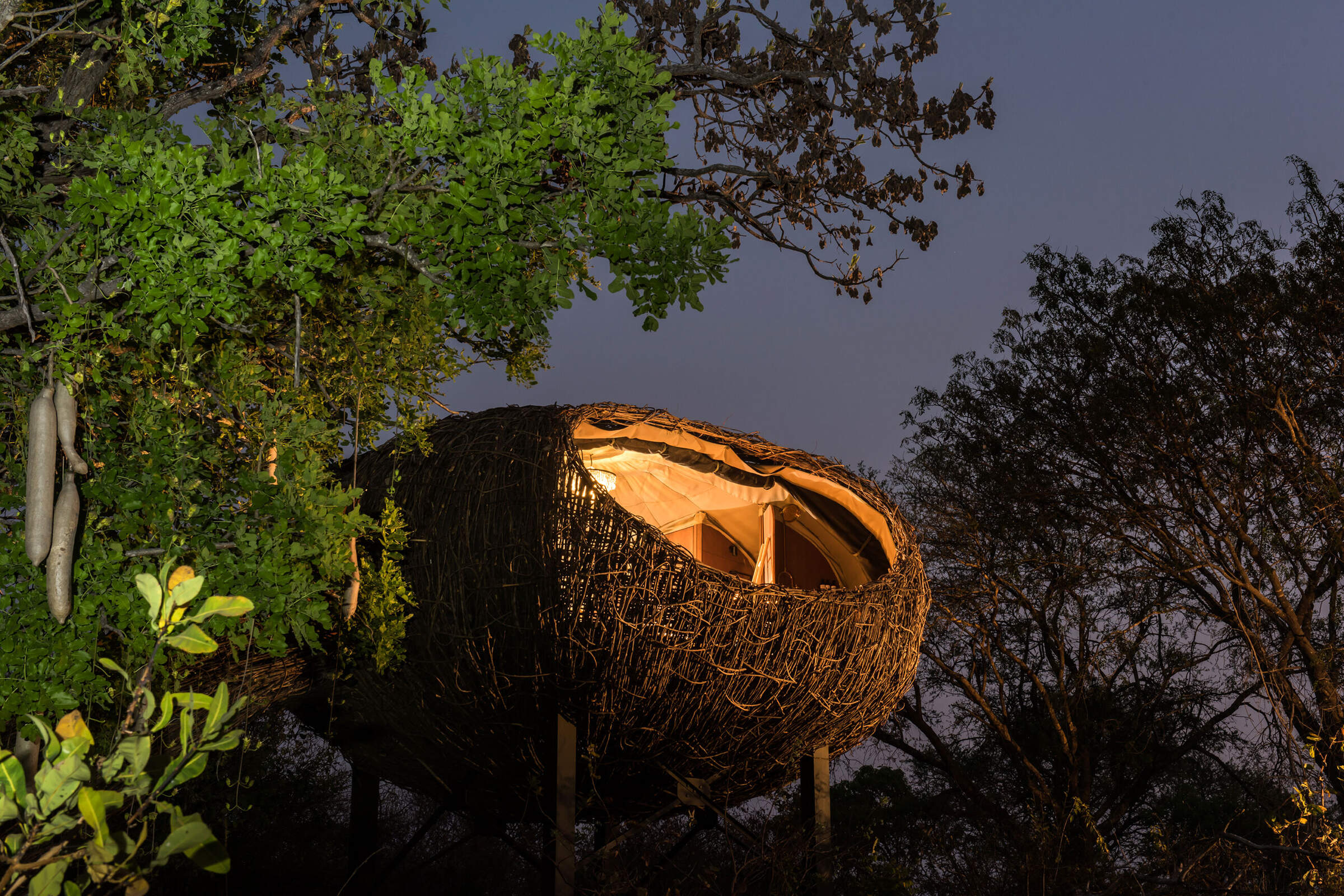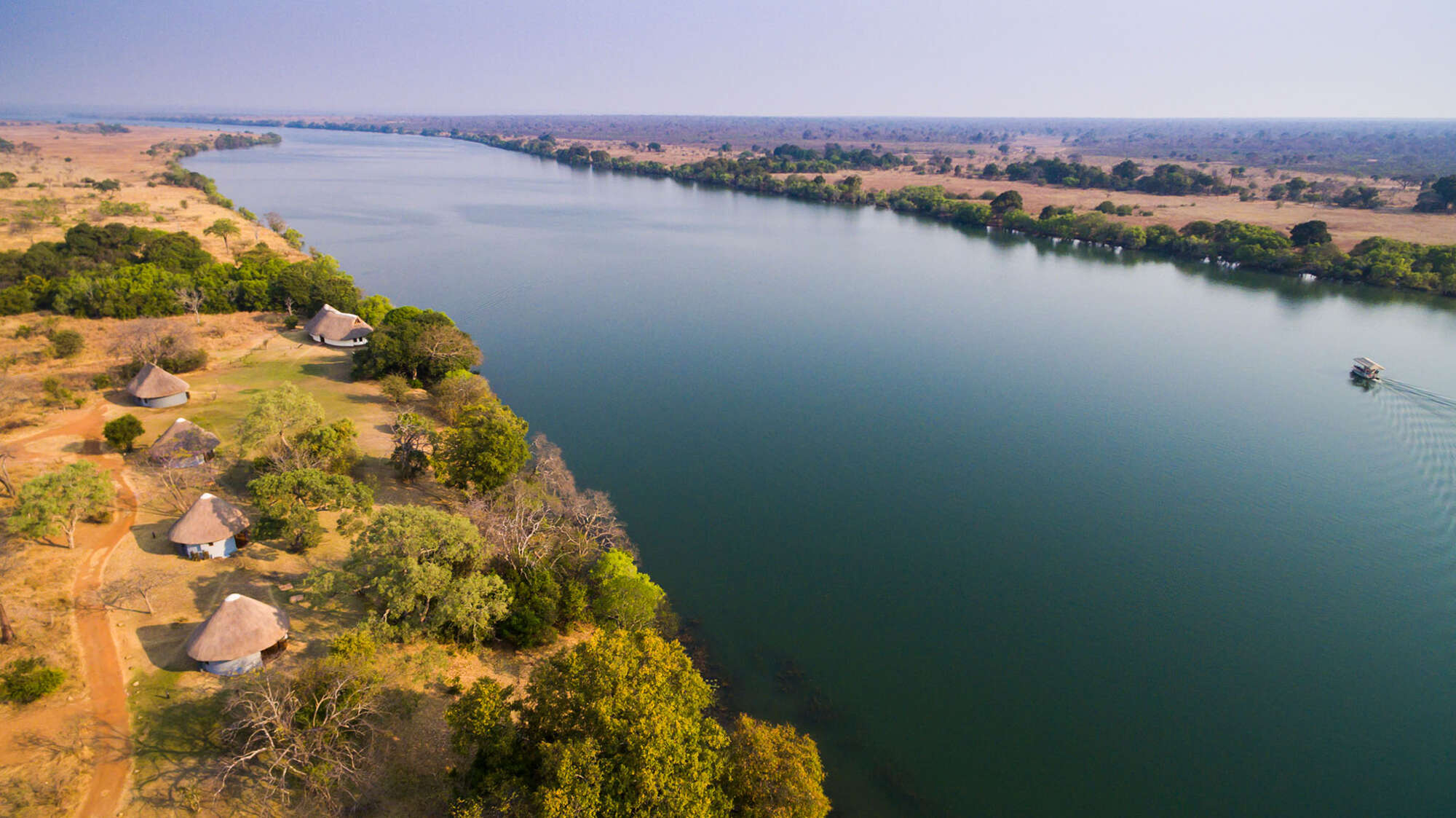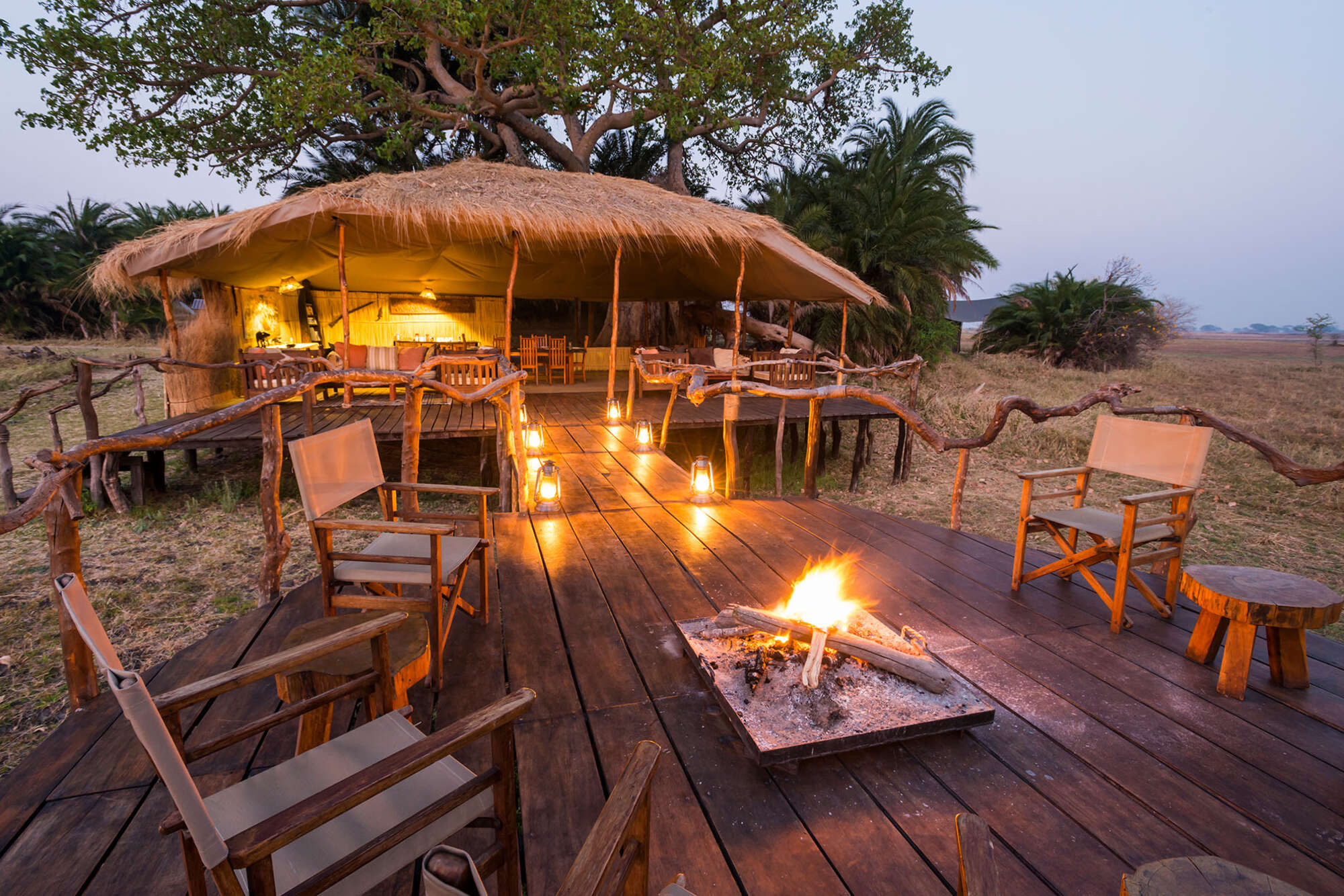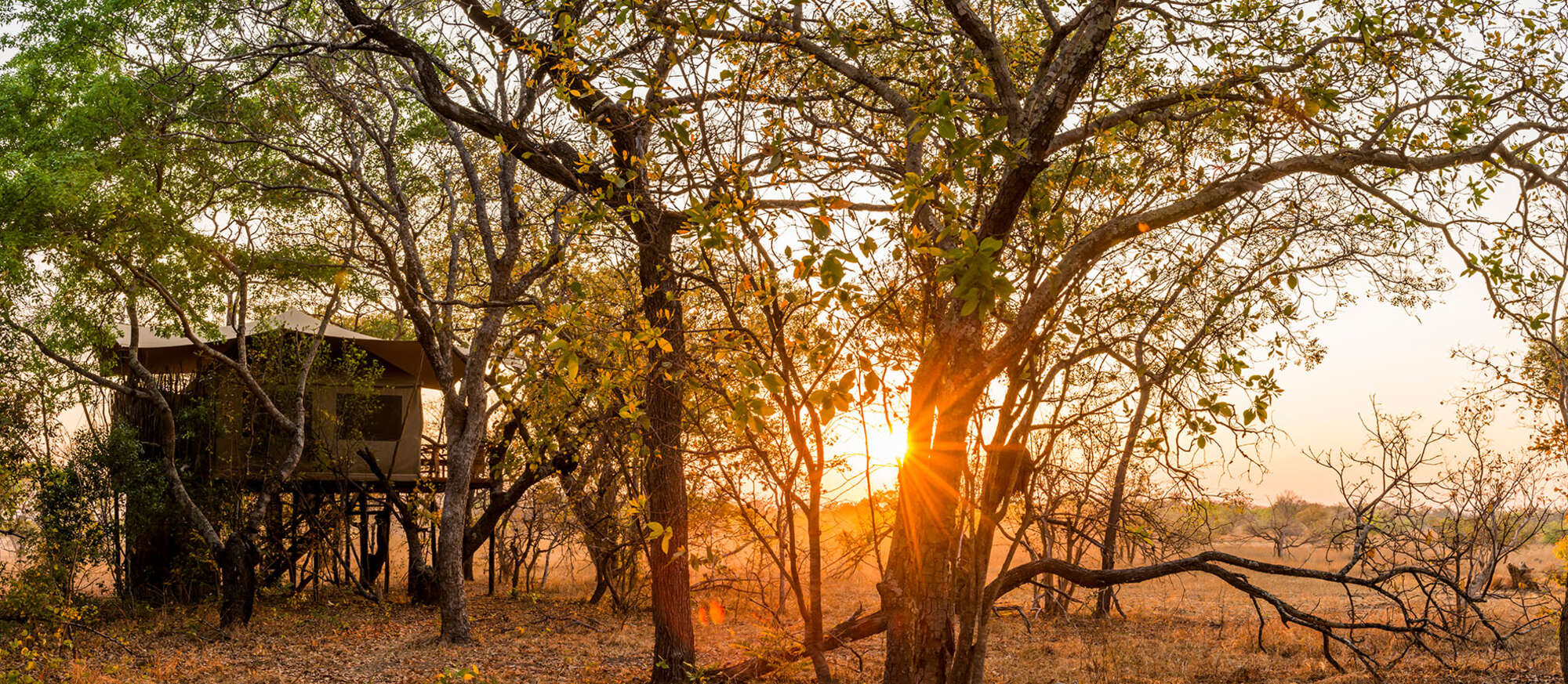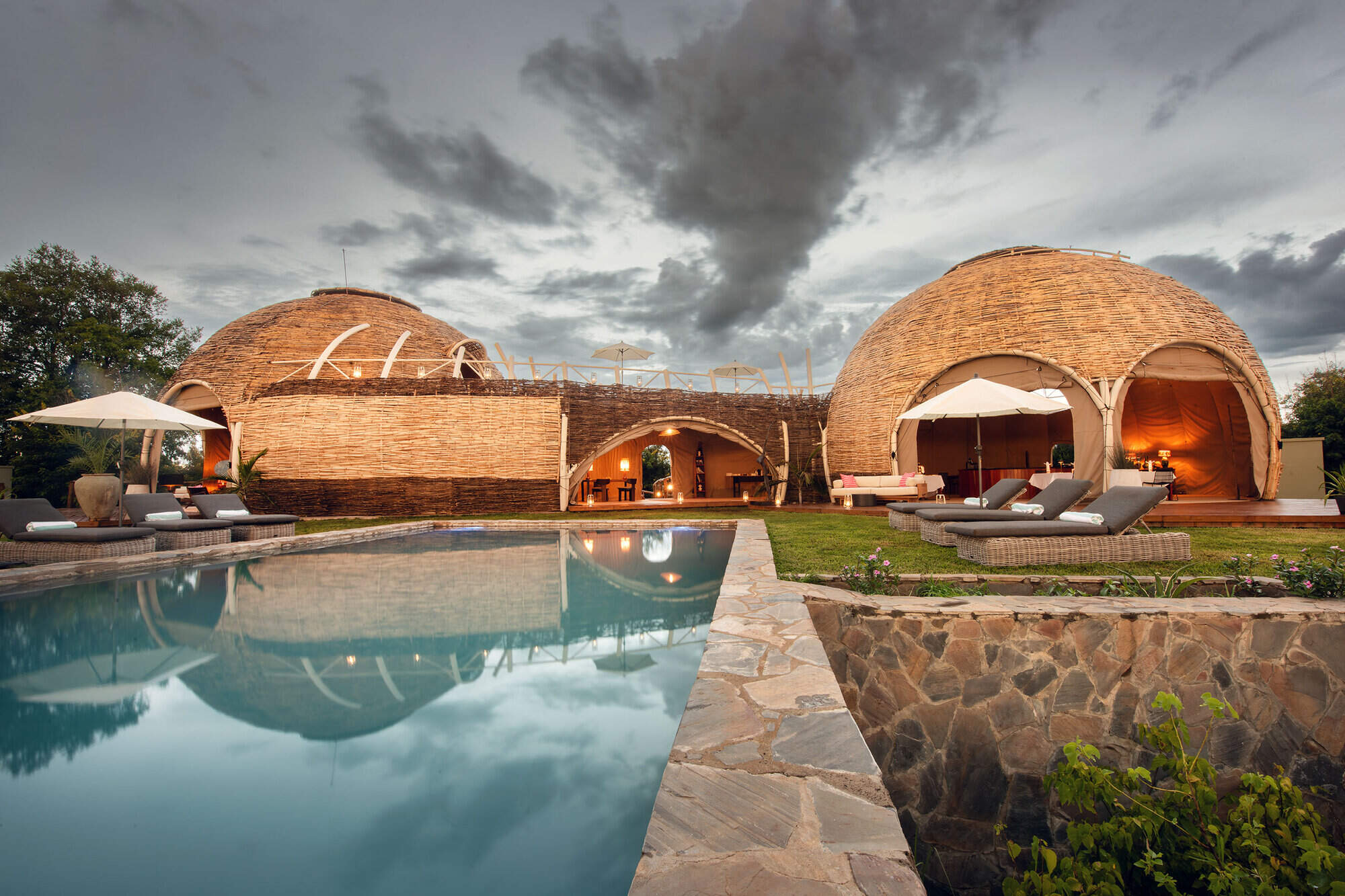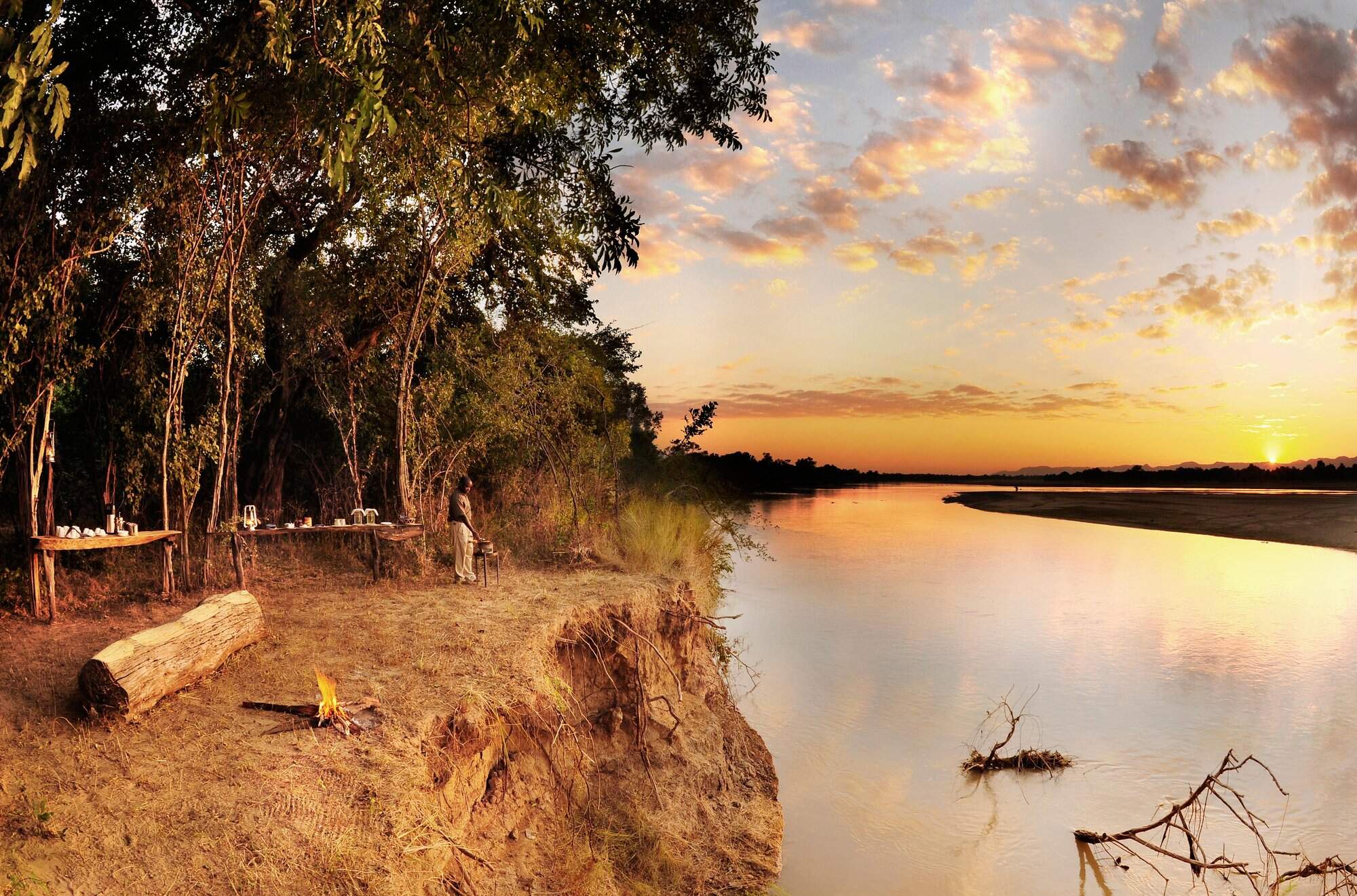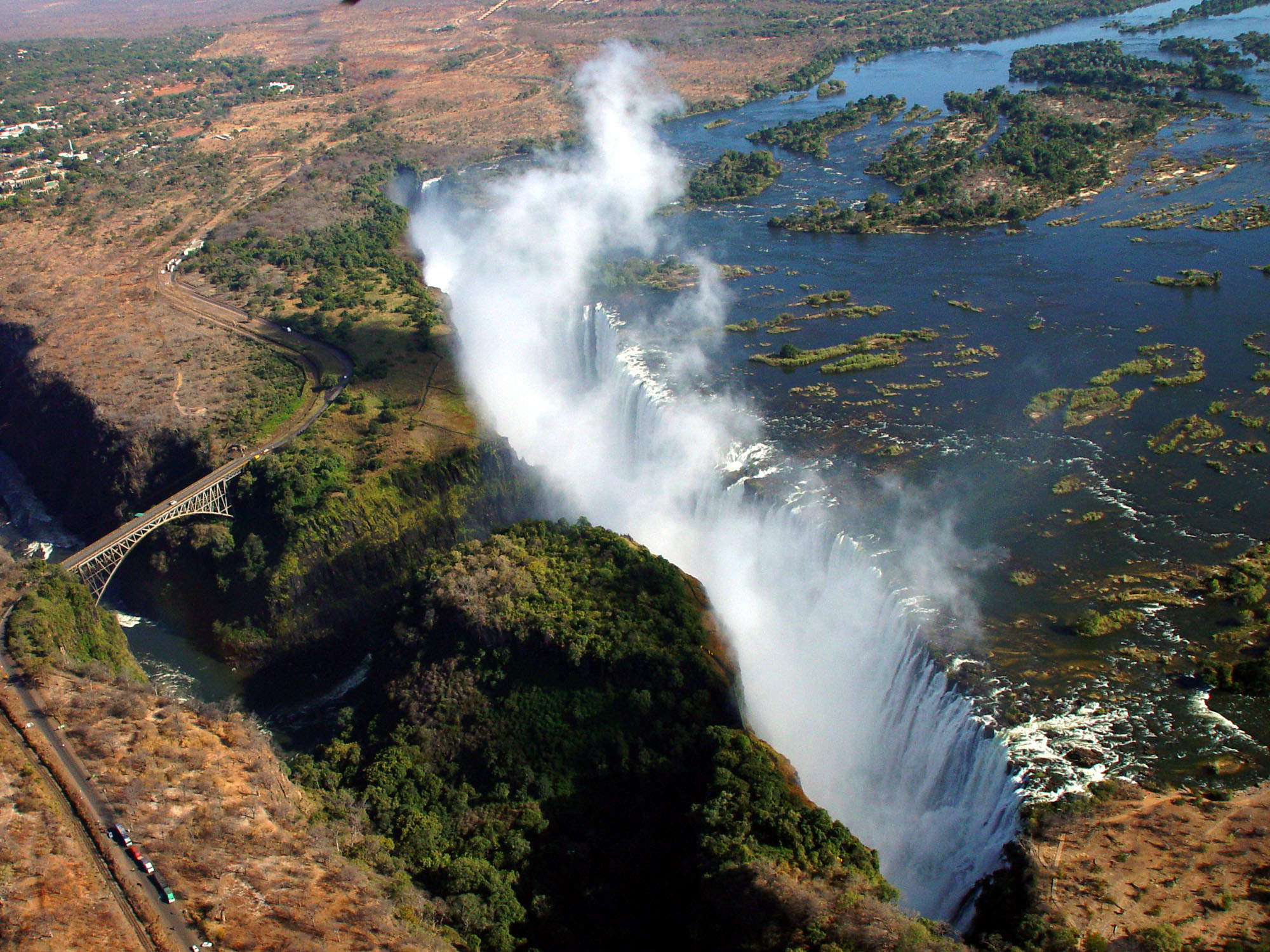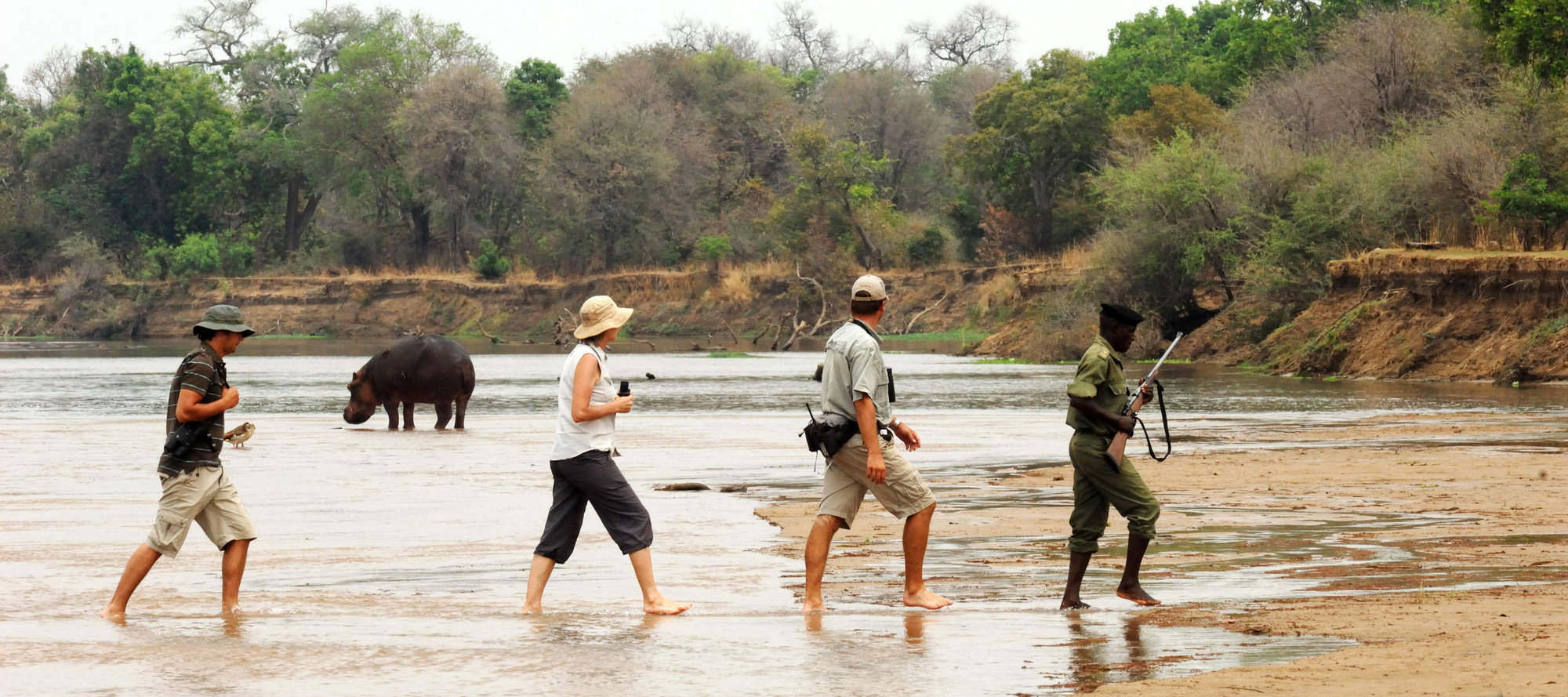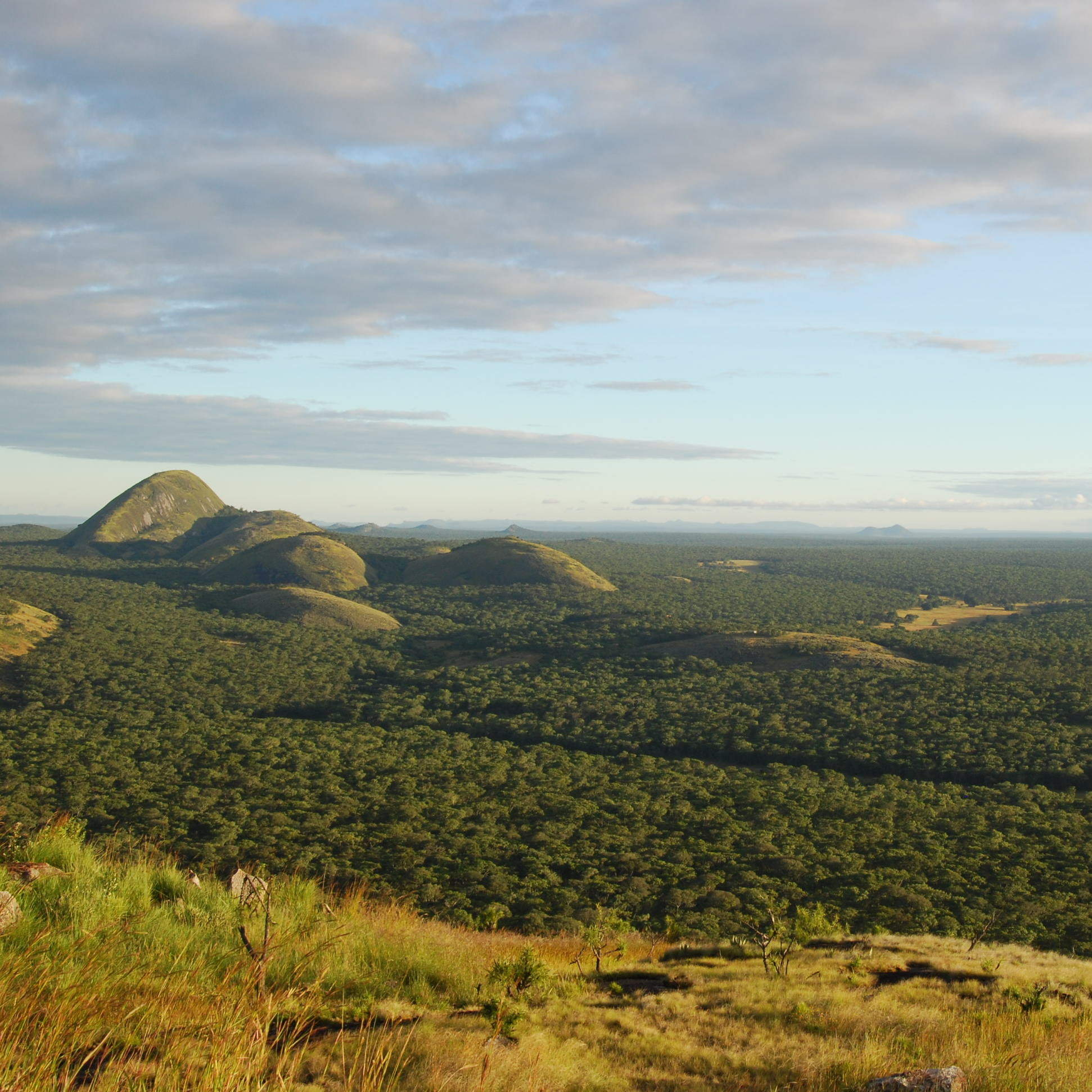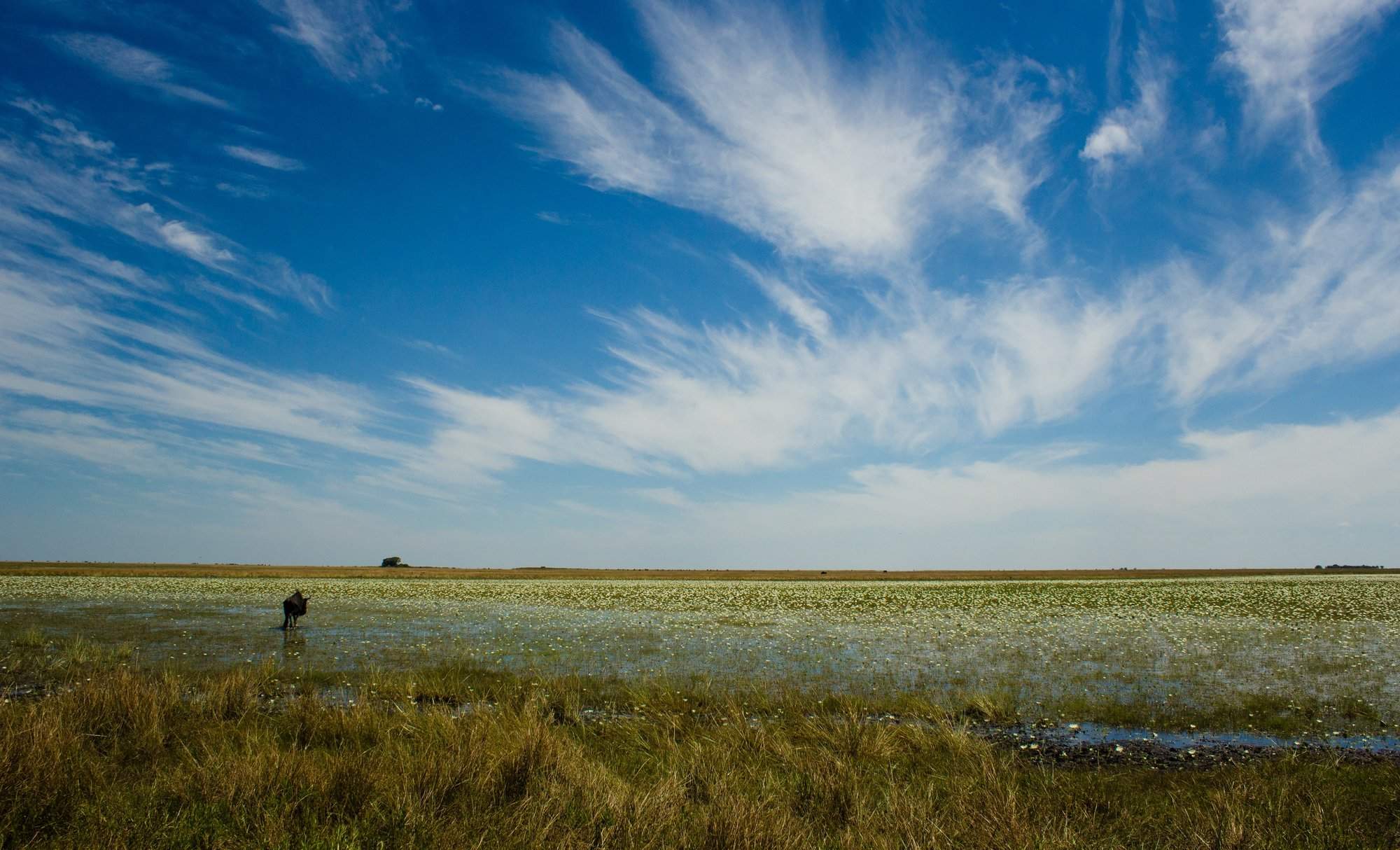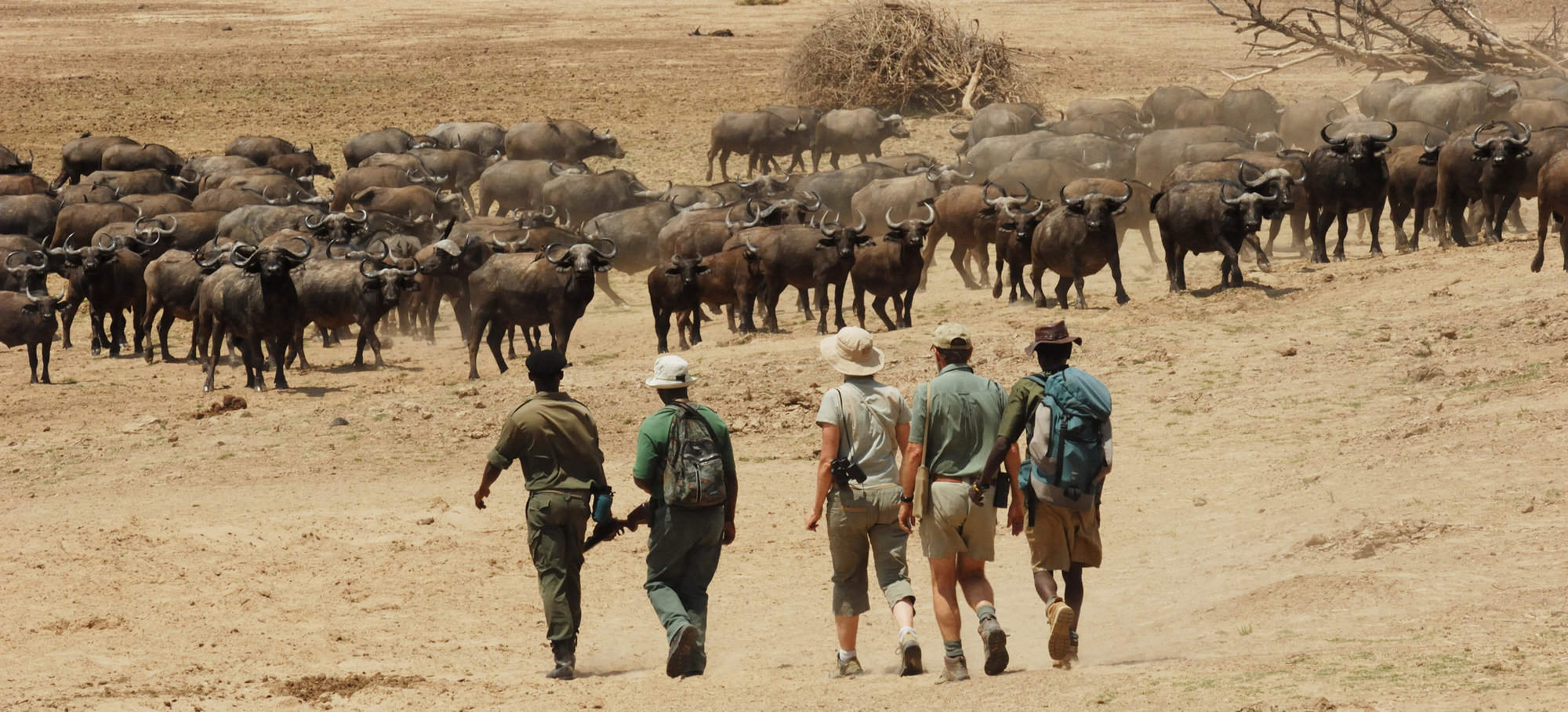Musekese Camp: Our full report
Overlooking a permanent lagoon in the Kafue National Park, Musekese lies in an area of mature riverine trees.
Founded by the enthusiastic Phil and Tyrone in 2013, it was previously a simple bushcamp on the edge of a floodplain near the Kafue River, but after significant renovations it was shifted in 2016 to an area the owners call “Eden”.This camp has made a real name for itself. Phil and Tyrone have both worked in the Kafue for many years and you can sense every bit of their enthusiasm for the park when you stay. Everyone we met praised them for their venture into a previously unused part of the Kafue: the remoteness of this area is a large part of the camp's draw. Add that the pair have opened up several loop roads, building hides and habituating wildlife and you have a really fun wilderness experience that feels new and unique.
The new iteration of Musekese Camp has seen the tents replaced with five chalets, all spacious, with wooden framed canvas walls, wide mesh windows and reed-and-thatch roofs, and wooden decks overlooking the lagoon. The chalets, fully refurbished in 2020 and refreshed for the 2024 season, are simple but comfortable and all are well-appointed with either twin or double beds under a walk-in mosquito net, bedside tables alongside and locally sourced wooden furnishings, including a hanging rack, shelves and chest of drawers. Each chalet has an open-plan en-suite bathroom, with a wide mesh window also giving an expansive view out to the lagoon in front. A basin and flush toilet are to one side, and a shower over a pebble and slate floor to the other. Eco-friendly toiletries are provided.
Lighting is from rechargeable solar lights that provide a good level of light for the room and bathroom - the lights are left out to charge during the day, then placed back in your tent at night.
The main area at Musekese is simple but homely, and we found it really charming. A rustic thatched roof sits over a polished stone floor, creating an open-sided comfortable lounge area, perfectly placed to look out across the view down towards the river. You'll find a couple of sofas and armchairs, scattered with colourful cushions, and in one corner is a map of the Kafue and some board games including Scrabble and Rummikub. Alongside is the bar, with soft drinks, beers, wine and a variety of spirits available, all of which are included in your stay. There's generally someone around to serve, though you're also welcome to help yourself throughout the day. There's also a charging station with international plug sockets, canvas water carriers to use on your walks and a basket of items for sale such as t-shirts and caps, as well as shelves with various reference books and others on the Kafue for guests to flick through.
The main area has been expanded in 2024, and though we’ve yet to see the finished result we understand there are further seating areas, and a section dedicated to the research carried out by Musekese Conservation.
A sandy path leads out from the main area down to split-level wooden decking, also overlooking the plain. The top level holds a tea station and a large communal dining table for shared meals. If the weather is inclement, meals are taken up in the thatched section. The lower deck has more chairs around a firepit.
The activities at Musekese are varied, and are all led by one of their knowledgeable and experienced guides. Many guests opt to focus on walking from the camp, which is a passion for both Phil, Tyrone and their experienced guiding team. On a previous last visit we enjoyed a long walk along the edge of the lagoon, watched a family of bush pigs (a rare occurrence to see them in daylight hours, but there's a family of them that are often seen from the camp) and saw a large herd of roan antelope. We then followed a large breeding herd of elephants, and found a little spot to shelter and watch while the elephants crossed the river and happily mud bathed in the sun.
Guides will often cross the river and walk on the other side, in an area inaccessible by car – so those looking for a very remote walking experience will enjoy it. In accordance with Zambian park rules, Musekese's walks are always accompanied by a trained, armed national park scout.
As well as walking, you can explore further afield on game drives. While on previous visits we have been a little underwhelmed by the somewhat limited amount of wildlife in the area (a throwback from poaching in past years), the animals are now much more habituated and recent experiences seem to suggest that things are much better. This part of the park has a good number of animals, and during our stay, we were lucky enough to see many herds of elephants (numbering several hundred in total), lion and various species of antelope, and some very relaxed leopards.
You may also want to head down river on the camp's steel-bottomed boat, which has comfortable seats for up to nine people. Musekese is especially worth visiting for the birdlife: look out for species such as the half-collard kingfisher; visit the African skimmers which are nesting on a sandbank near camp; and keep your eye out for the Africa finfoot, which you might be lucky to see.
From a smaller second boat with removable seats, it is also possible to do bait or spinner fishing. Musekese tell us that they will also accommodate guests with their own fly-fishing kit. The fishing here is very good, especially during the drier months from August to October, when you have a good chance of catching sizeable bream, pike and barbel.
A treehouse hide is just a short walk from camp, raised high to allow for elephants to walk beneath, giving guests an alternative option between the other activities on offer, or as an option in itself.
Musekese is located in the central area of the park, so combines well with its sister camp Ntemwa Busanga. A simpler camp located at the southern end of the Busanga Plains, Ntemwa can be accessed by a three-hour road transfer or a chartered flight from Musekese and offers access to a completely different area of the park in terms of the landscape and the ecosystem.
Our view
The wildlife viewing here is arguably some of the best in the Kafue, but we felt that the camp’s real strength lay in its simple camp charm, and the clear passion of Phil and Tyrone to protect this previously unused part of the park. Those looking for a true wilderness experience, hosted by excellent guides, will love it - it is definitely one of our favourite camps in the area.
Geographics
- Location
- Kafue National Park, Zambia
- Ideal length of stay
- If travellers are visiting just Musekese, three or four nights is perfect. Those also wishing to experience their Ntemwa-Busanga camp will want to stay in the area for about a week.
- Directions
- Musekese is around a five-hour drive from Lusaka: three hours on tarmac and two on bush tracks. Do be aware that, depending on Lusaka traffic, and the current state of the roads in the park, it's possible for this transfer to take up to 7 hours, possibly more. It is also possible to fly for an hour to Lufupa airstrip in the Kafue National Park, via charter. Then it is a short vehicle and boat transfer of 20 minutes to the camp, which is on the other side of the river.
- Accessible by
- Fly-and-Transfer
Food & drink
- Usual board basis
- Full Board & Activities
- Food quality
- The food at Musekese was good, and we enjoyed the dinner party style atmosphere of the communal meals when we stayed in October 2023. The camp’s kitchen is able to cater to a wide range of dietary requirements, with advance notice.
Breakfast is set out at 6am around the campfire. It is a help-yourself system, with cereals (branflakes, rice crispies and muesli), hot porridge, fruit salad and toast cooked on the fire. There is also yoghurt, tea and coffee.
A buffet lunch is served after guests return from the morning activity, usually around 11am and midday. We enjoyed a pasta salad, coleslaw and a fresh salad with olives, hard-boiled eggs, tomatoes and cucumber, along with chicken, beef and vegetable skewers, served with freshly-baked bread is on offer, along with a selection of chutneys and pickles. A fruit bowl was placed on the table for people to help themselves
At teatime, before the afternoon activity, we had freshly baked doughnuts and a fruit dip, which were really tasty.
Dinner on our first evening was a starter of ratatouille and pesto bruschetta, followed by delicious beer battered tilapia fillets, with chunky chips. Pudding was a peach and sultana crumble, and there were a selection of teas, coffee and after-dinner drinks on offer also. - Dining style
- Group Meals
- Dining locations
- Indoor and Outdoor Dining
- Further dining info, including room service
- Musekese can arrange bush dinners for special occasions, if they are advised in advance.
- Drinks included
- Filtered drinking water from the camps borehole), soft drinks and local alcoholic drinks are included. The camp offers a few premium wines, which are an extra cost.
Special interests
- Birdwatching
- With over 490 species in the Kafue, this park is great for bird-watching in Zambia. Combine that with the excellent guides at Musekese and you are likely to have a superb birding experience.
- See ideas for Birdwatching in Zambia
Children
- Attitude towards children
- Musekese welcome older children.
- Property’s age restrictions
- Children under the age of 14 years are not permitted to take part in walking safaris. Families travelling with children under the age of 12 years will have to book the whole camp, and the children are not able to go on the mobile camping trip.
- Special activities & services
- Musekese has no special facilities for children, but they do have some board games and some arts and crafts.
- Equipment
- Musekese does not have any special equipment for children.
- Generally recommended for children
- Musekese is a small camp with an informal atmosphere and an attentive team – which is good for families with older children. Younger children might feel the lack of infrastructure here.
- Notes
- Musekese is a very wild camp. Children are the responsibility of their parents or guardians and should be under supervision at all times.
Our travellers’ wildlife sightings from Musekese Camp
Since mid-2018, many of our travellers who stayed at Musekese Camp have kindly recorded their wildlife sightings and shared them with us. The results are below. Click an animal to see more, and here to see more on our methodology.

100% success

96% success

96% success

91% success

65% success

33% success

32% success

30% success

22% success

16% success

16% success

10% success

6% success

0% success

0% success

0% success
Communications
- Power supply notes
- There is a charging point with international sockets and additional USB points located in the main area. Musekese works on solar power, for the lamps in the tents and along the pathway, the fridges/freezers and the central charging station. There is a back-up generator.
- Communications
- While at Musekese you should consider yourself out of contact; there is no WiFi or phone signal. In case of emergency, guests may use the camp’s internet service.
- TV & radio
- No
- Water supply
- Borehole
- Water supply notes
- Musekese has its own borehole, and water from this is pumped to the plumbed bathrooms. The camp bathrooms have plumbed wash-basins, showers and flushing toilets.
Fresh drinking water is sourced from the borehole also, which helps the camp to reduce the amount of plastic that they have to throw away.
Sustainability
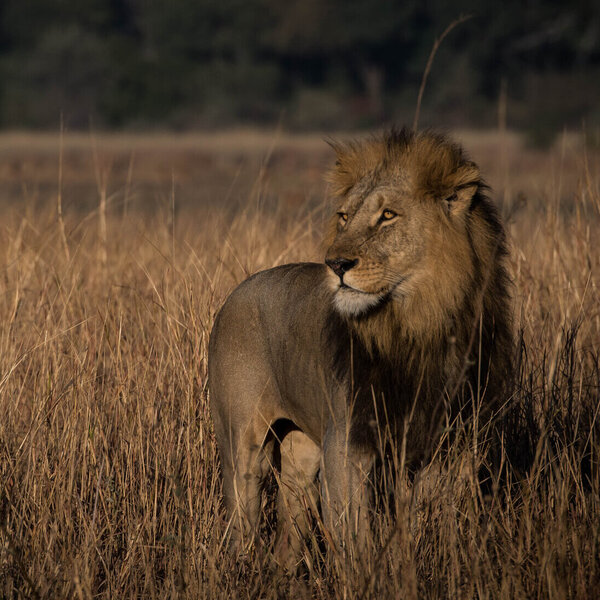
Wildlife conservation in action
Established in 2017 by the owners of Musekese and Ntemwa-Busanga camps, Musekese Conservation (MC) has a responsibility to protect a 2,700km² area of the northern Kafue National Park. Working with other like-minded organisations and the Zambian Department of National Parks and Wildlife (ZDNPW), their impact is already telling, with a significant reduction in illegal activities and a commensurate increase in wildlife populations.
Key to their work is the establishment of a large anti-poaching base, which by the end of 2020 was supporting four anti-poaching teams, with more envisaged. Nearly all of the scouts, which include an increasing number of women, are recruited from the nearby communities. Each new recruit is trained by the ZDNPW, with MC committed to extending this with specific courses in areas such as first aid, night operations and crime-scene management. From 2021, the MC teams will also benefit from a light aircraft to support their anti-poaching and monitoring activities.
In addition to on-the-ground protection of wildlife and the environment, Musekese Conservation established a research team in 2020. Its aim is to establish baseline populations of large carnivores and their prey within the park, as well as monitoring resident prides, packs and individuals that are flourishing under this new-found protection.
Rates at both Musekese and Ntemwa-Busanga camps include a contribution to this conservation work of US$40 per night. Guests may also opt to visit MC’s anti-poaching base whilst staying at Musekese Camp, perhaps meeting up with project staff and scouts, and there are plans to establish a visitor centre here to enable a greater understanding of the challenges of wildlife conservation in Africa.
See more great sustainability projects in Zambia
Health & safety
- Malarial protection recommended
- Yes
- Medical care
- The guides at Musekese are first-aid trained, and both Phil and Tyrone complete regular advanced first-aid training . There is a trauma kit in camp for serious injuries, and a basic first-aid kit for minor ones. First-aid kits are taken out on activities. The camp has cover for medical evacuation to Lusaka and Johannesburg, and would use Lufupa airstrip as its evacuation point.
- Dangerous animals
- High Risk
- Security measures
- The camp staff escort guests to and from their tents at night.
- Fire safety
- Musekese has a fire break around the camp, and they also have fire beaters and water bags. Every chalet and vehicle has an extinguisher, as does the kitchen and main area. Two staff members have attended fire-fighting training.
Activities
4WD Safari
Birdwatching
Boat trip
Fishing
Guided walking safari
Night drive
Extras
- Disabled access
- Not Possible
- Laundry facilities
- Laundry is included in the cost and is hand washed, line dried and coal ironed. The camp are happy to wash all items, but washing powder is available if there is anything you would rather do yourself.
- Money
- Guests are welcome to use the central safe at Musekese; just discuss this with Phil and Tyrone when you arrive. There is no currency exchange here as the camp does not carry much in the way of cash.
- Accepted payment on location
- Any additional payment must be made in cash only: Zambian kwacha, US dollars or any other major currency.
Other lodges in Kafue National Park
Alternative places to stay in this same area.

